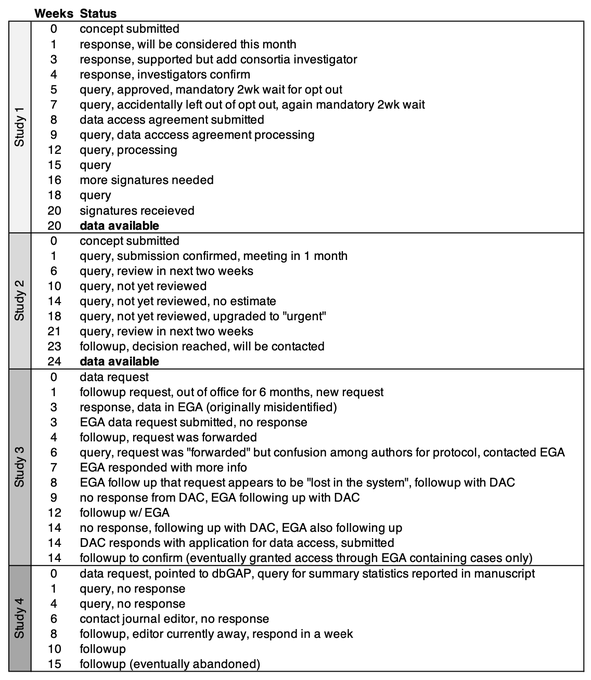
Priya Moorjani
@moorjani_priya
Followers
2,538
Following
550
Media
23
Statuses
1,044
Population Genetics, Human Evolution
UC Berkeley, CA
Joined March 2018
Don't wanna be here?
Send us removal request.
Explore trending content on Musk Viewer
Project 2025
• 404671 Tweets
Ukrainian
• 213991 Tweets
Kiev
• 143298 Tweets
SAVE Act
• 104647 Tweets
Rusia
• 85882 Tweets
Houston
• 78074 Tweets
石丸構文
• 72361 Tweets
#ülkemdesiyonististemiyorum
• 68884 Tweets
Marvel
• 66948 Tweets
Kh-101
• 53402 Tweets
Parkinson
• 49747 Tweets
Big Boy
• 39123 Tweets
Luna Bella
• 34528 Tweets
Djokovic
• 30530 Tweets
Rune
• 28789 Tweets
Wanda
• 22204 Tweets
Jadue
• 20954 Tweets
KATY PERRY IS COMING
• 20912 Tweets
Beter
• 20033 Tweets
Fritz
• 19232 Tweets
Mercosur
• 18551 Tweets
$WATER
• 16488 Tweets
Zverev
• 16359 Tweets
Branthwaite
• 14368 Tweets
Whoopi
• 13856 Tweets
PROUD OF YOU JIMIN
• 12659 Tweets
John Kirby
• 12509 Tweets
Last Seen Profiles
Pinned Tweet
Very excited to share this study on Neandertal ancestry through time, led by
@IasiLeonardo
and
@M_Chintalapati
. Great collaboration with
@SkovLaurits
,
@MatejaHajdi
, Alba Bosoms Mesa and
@benmpeter
. More details 👇
In a collaboration between
@M_Chintalapati
,
@SkovLaurits
, Alba Bosoms Mesa,
@MatejaHajdi
,
@benmpeter
and
@moorjani_priya
, we've journeyed into our shared history with Neandertals by analyzing over 300 genomes spanning 50,000 years. A thread 🧵🧬
3
73
149
2
23
73
Very excited to share out recent work on Indian evolutionary history led by
@e_kerdoncuff
&
@SkovLaurits
. Many surprises (e.g., archaic ancestry in India) and some clarifications (e.g. source of Iranian-farmer ancestry related to Sarazm) and timing of OOA in India. More details👇
We (
@SkovLaurits
,
@e_kerdoncuff
and
@moorjani_priya
) are very happy to share this preprint on the genetic history of India: 50,000 years of Evolutionary History of India: Insights from ~2,700 Whole Genome Sequences
🧵🇮🇳🧬 [1/11]
8
80
282
9
58
238
My lab is looking for a postdoc interested in working on human evolutionary genetics, in particular on mutation rate, demographic inference and archaic ancestry. For details see: or come find me at
#SMBE2020
. Please RT!
5
186
178
Excited to share our new method, ASCEND, to characterize founder events using allele sharing covariance across pairs of inds. Great collaboration with
@ArcimBoldique
and Gillian Chu! Comments and feedback welcome!
6
78
173
Excited to share our recent work on mutation rate “Timing and causes of the evolution of the germline mutation spectrum in humans”. Great collaboration with
@ziyue_gao
,
@YulinZhang19
and
@molly_przew
.
1
51
155
Our revised manuscript on mutation rate differences across human populations is now online. Great collaboration with
@ziyue_gao
,
@molly_przew
, Nathan Cramer and
@YulinZhang19
.
4
44
152
What do we know about the evolution of mutation rate in primates?
@M_Chintalapati
and I reviewed phylogenetic, pedigree, polymorphism and fossil evidence to learn mutation patterns across primate evolution.
1
55
148
New paper on our method DATES for inferring timing of admixture is out in eLife today: Great collaboration with
@M_Chintalapati
and Nick Patterson!
5
46
147
Our paper “Reconstructing the spatiotemporal patterns of admixture during the European Holocene using a novel genomic dating method” led by
@M_Chintalapati
and Nick Patterson is on biorxiv!
2
59
145
Excited to share our new paper on mutation rate, led by
Felix Wu, co-supervised with
@molly_przew
. Great collaboration with Jeff Wall and others. Comments and feedback welcome!
2
42
141
Lets not just tweet and forget about this history. Lets actually teach this history to our students. I have a PhD in Genetics and I have never taken a class which taught eugenics. Shocking, no?
4
16
125
Excited to share our study on founder events "Reconstructing the history of founder events using genome-wide patterns of allele sharing across individuals" now out in PLOS Genetics led by collaboration with
@ArcimBoldique
.
1
45
122
Puzzling results in comparing mutation rates in humans and baboons. Great collaboration with Felix Wu,
@molly_przew
, Alva Strand, Jeff Wall and Carole Ober.
1
35
83
We are looking for a graduate students and postdocs interested in human population genetics and evolution. Interested applicants
#ASHGtrainee
, please get in touch tomorrow at
#ASHG19
or by email. You can find details of our work on our website: . Please RT!
2
74
75
Ya it’s pretty incredible to think our little Oakland lady and all other children of immigrants can achieve whatever they set their hearts to and can go forward unburdened, unwavering, and undaunted by the past. Go Biden and Kamala!!
It is an understatement to say that it is inspirational to see that USA is the country where my 3 month old Oakland-born daughter of immigrants whose Indian-born mother
@moorjani_priya
works at
@cal
can achieve anything she puts her mind to. 😭🇺🇸😀
1
5
72
1
3
56
Come join the exciting PhD program at UC Berkeley! Our lab is recruiting graduate students with expertise in computational biology and interest in studying human evolution, mutation rate and ancient DNA. Don't wait apply now!! Deadline is Dec 2. Please RT!
Apply to be a
@UCBerkeley
MCB PhD Graduate student today!
Applications are due Dec 2.
Learn more:
#UCB
#grexit
cc:
@savagecatsonly
@mbeisen
@moorjani_priya
@russellevance
1
16
21
1
34
54
Our department
@berkeleyMCB
is recruiting a TT Assistant Professor of Genetics, Genomics & Development. Berkeley is a fantastic place to live and do science - with great colleagues in MCB, IB and Computational Biology. Come join us!! . Please share/ RT!
0
44
44
Also includes our new method DATES for inferring admixture time in ancient genomes. Great collaboration with Nick Patterson and
@M_Chintalapati
. Methods paper to follow soon but if you are interested, check out — . Comments/feedback welcome.
1
18
43
Great fun collaborating with
@g_hellenthal
on this review. Hope it is helpful to students and experts for thinking about the assumptions and considerations of various population genetics methods. Comments welcome!
A nice review of methods for inference of demographic history and relationships between populations.
By
@moorjani_priya
@g_hellenthal
1
11
51
0
7
41
@SamLewisPhD
Thats the story of Physics & Math -- your publications on arXiv count as published work. People take the preprints seriously and the most cutting-edge work is available there.
2
2
34
This is really terrible use of researchers time. Datasets should be deposited in public dbs, e.g, dbGAP, EGA, etc. If journals and NIH won't do anything, then as reviewers - we should ensure that the dataset is available upon publication and in turn, science is more reproducible.
0
11
31
Very important analysis by
@apragsdale
and Thornton highlighting major limitations of several recent population genetics methods -- Wang et al. for inferring generation time and Relate/ GEVA/ tsdate for inferring mutation age estimates.
Recently
@suggestive_pval
@3rdreviewer
et al inferred past human generation times from changes in the mutation spectrum over time. We think this approach is heavily biased by uncertainties in allele age and de novo mutation rate estimates.
See and below:
1
11
39
1
8
30
@molly_przew
@bvhalldorsson
@sciencemagazine
Many of the key results in the paper, including Fig 2, Table 3, parental age effects on DNMs, mutagenic effects of recombination beyond 1kb, depend on the larger set of >200K DNMs.
1
5
29
This is really sad - both for free speech and the future of publishing.
The
@eLife
board has decided to fire the editor-in-chief for expressing his personal political opinion, in this case his concern about the bombing of civilians.
112
1K
5K
0
1
23
Its great to see that leaders in our field respect the scientific method and correct the record when they find errors in their work...sets a great example for all of us to follow.
0
2
21
@AprilWei001
Science is tough most days but to find out that your results are wrong because of data issues (beyond your control) is even tougher. The way
@ras_nielsen
and you have handled this situation - with integrity and openness - sets an example for all of us to follow.
0
0
19
Important replication and validation of findings related to CCR5-Δ32 by
@AprilWei001
and
@ras_nielsen
. Also identifies imputation and other errors in UKbiobank data.
0
4
19
Wow, what an inspiring group - I wish all announcements included fellows from such diverse backgrounds and focus. Congrats Polina!!
One week ago, we announced the 2020 MacArthur Fellows!
#MacFellow
🧠⚡
We scoured the Internet for some top quotes on how they reacted to the news, so here's a thread that we'll keep going...
📈📱⚙️🧼🧬🧠🎭🚰🩺🖥️✍️🖼️🦠🧫⚖️🏠📜📖💭📚🗣️🎵🎶🔬🧲🧪⚗️🔍🎥📕
2
9
58
0
0
16
A detailed and careful analysis of X and autosome differences in humans by Agarwal and
@molly_przew
. Very exciting work!!
0
4
14
@iosif_lazaridis
Ust' Ishim also has evidence for at least two pulses of Neanderthal admixture () and so thats evidence for more two pulses of Neanderthal admixture in modern humans.
1
4
11
@Ceballos_Gene
@jgschraiber
Yes, raises many questions about the use of molecular clock for estimating divergence/ split time across species. We wrote a review on it a couple of years, highlighting additional inconsistencies.
1
7
12
@FerRacimo
-- Thanks for a great, thought provoking talk and raising our awareness on how each of us needs to rise to action to save our planet!
0
3
11
Important paper by Telis et al. Everybody should read this.
0
5
11
Exciting new approach for imaging and sequencing protein-DNA interactions in single cells by
@NAltemose
and
@airstreets
0
1
11
@jgschraiber
@andersbrgstrm
@Graham_Coop
@mathiesoniain
@salonium
@vsbuffalo
Theoretically, the long haplotypes cannot be explained by ancient population structure. Sriram also explored this extensively by simulations in his paper.
1
4
10
@Dr_EEbel
30% female faculty in a department is actually on the higher end and many depts brag about the proportion
1
0
11
Very interesting study from Priyanka Nakka, Sohini Ramachandran and colleagues. Great insights from use of the 23andMe and UKbiobank data to improve our understanding of UPD and recombination rate.
Did you know one can inherit both copies of a chromosome from just one parent? Read all about it in our latest paper, with
@23andMeResearch
and led by former grad student Priyanka Nakka in American Journal of Human Genetics. 1/3
6
93
283
0
1
10
@jn_pelaez
The length of a PhD is hardly considered a metric of success or advancement in science - its all about solving an exciting unsolved question and your training. So don't let this bother you at all. The fact that another student made this comment shows his lack of immaturity.
0
0
9
Woot, woot! 🔬🎉
Excited to share updated preprint by
@ChoeMangyu
showing that, contrary to textbook view, the role of allosteric regulation of glycolysis is not to control rate but to maintain ATP levels by preventing a futile cycle between upper and lower glycolysis. 🧵
1
8
23
0
2
10
Titov lab on a roll... Kicking off the new year with a bang! Congrats
@ChoeMangyu
and
@Denis_V_Titov
!
Excited to share the second of the two holiday preprints from our lab. This one led by
@ChoeMangyu
. We explore the role of allostery in regulating glycolytic ATP homeostasis. Super fun collaboration with
@Tal_Einav
and Rob Phillips. A long 🧵... (1/n)
2
11
57
0
0
10
@bvhalldorsson
Thanks for the clarification. The file was labeled without the correction extn, hence the confusion. I was wondering if you release the dnm data -- I could only find the data for 185 dnms that were verified by Sanger (Data S5) but not the full >200K dnms reported in the paper.
1
1
10
Just another week for
#WomenInSTEM
;) Go Bears!!
The last 24 hours in our department saw Kathy Collins win an NIH Pioneer Award,
@LishkoPolina
being named
@macfound
genius, and
@doudna_lab
being awarded a
@NobelPrize
. Congratulations to these amazing
#WomenInSTEM
and their incredible home,
@berkeleyMCB
@UCBerkeley
4
71
348
0
0
9
Great lab, great PI and great university...apply right away!
We're looking for an ambitious postdoc to lead our
@NIHDirector
New Innovator Award project studying metabolism and aging in C. elegans using novel approaches and tools.
Details:
Please RT!
1
37
36
0
2
9
@SamLewisPhD
Remember in Particle Fever (Higgs boson documentary), they kept refreshing "arXiv" to see if there were any updates from CERN
1
0
9
@jgschraiber
@andersbrgstrm
@Graham_Coop
@mathiesoniain
@salonium
@vsbuffalo
Also the ancient DNA evidence for early modern humans that contributed to present-day lineages, in addition to Oase and Ust Ishim is pretty hard to explain by structure alone.
1
0
8
Great collaboration with
@andganna
, Jinkook Lee, Sharon Kardia, AIIMS India (AB Dey and Sharmistha Dey), Jen Smith, Wei Zhao, Yuk Yee Lueng, Gerard Schellenberg and Nick Patterson. Any comments or feedback would be much appreciated!
1
1
8
This study has been a long time in the making (~8 years for me). It's been a fun journey of learning and discovery: there were so many puzzling signals that most of our hypotheses had to be revised. Grateful to work with the amazing team w/
@ziyue_gao
,
@YulinZhang19
&
@molly_przew
1
0
8
@iosif_lazaridis
Is this desire of indigenous communities or researchers leading the studies. It's appalling that some scientists try to pin this on indigenous communities who consent to give their data for genetic studies. Why would indigenous communities be against open science? Doesn't add up?
1
0
8
@pontus_skoglund
@johnhawks
@mathiesoniain
Here are the latest dates adding few more Upper Paleolithic genomes now available.
2
1
7
@iosif_lazaridis
However, LD statistics support a single pulse of admixture in Kostenki (36,000 year old European individual) and Tianyuan (40,000 year old East Asian individual). Its possible mixtures occurred more recently though & so this does not rule out multiple pulses in history of Asians.
0
0
6
ASCEND is available on github. Any comments or feedback would be most welcome and appreciated! Great collaboration with
@ArcimBoldique
and
@gillianychu
.
1
0
6
@razibkhan
You would think with all the programmers of South Asian origin at Google, they could get this one right. Oy Vey!
1
0
6
Lastly, we also apply ASCEND to dogs and find evidence for extreme founder events in most dog breeds that date to Victorian times when many breeds were formed. These results echo findings from recent study by
@Jazlyn_Mooney
1
0
5
@archaeometer
@pontus_skoglund
@johnhawks
@mathiesoniain
For recent admixtures, the block sizes can be very large, MB scale long. At that size scale, the human and chimp maps are strongly correlated. And so its unlikely that differences in Neanderthal map would impact the dates.
1
0
5
Great post by
@johnhawks
about Cavalli-Sforza's work: "I started thinking about a project so ambitious it seemed almost crazy: the reconstruction of where human populations originated and the paths by which they spread throughout the world."
0
0
5
@jgschraiber
@mathiesoniain
@itsbirdemic
Also see: where we tried different known ascertainments for SNPs and the fstatistics/ admixturegraphs were robust, largely because most of the inference is driven by average patterns across the genome and not few rare variants.
0
1
5
@NicMAlexandre
The supplement of Reich et al. 2009 (Reconstructing Indian population structure) might be useful.
1
0
5
@pontus_skoglund
@johnhawks
@mathiesoniain
Note the systematic errors related to the recombination map are less of a problem for ancient genomes. For ancient samples, the dates of admixture are very recent and hence the blocks of Neanderthal ancestry are fairly large and hence the map errors have minimal effect on dates
3
0
5
@tuuliel
Yes of course. You can find it here.
We start with Mendel, Darwin, selective breeding expts in plants and animals. Discuss Galton, Charles Davenport and widespread acceptance of the ideas in America -> sterilization -> Holocaust.
2
1
5
@vsbuffalo
Overleaf is absolutely wonderful!! I have written couple papers recently in it and its very smooth & painless, allows commenting/ track changes, bibtex integration and I don't know which fancy version
@psudmant
is using but the basic free version works great!
1
0
5
@vsbuffalo
Wow! Thanks for the shoutout. In my postdoc, I had a hard time finding primate divergence estimates mentioned in many papers but never clearly presented that I thought it might be useful to someone if we just add the table with the figs. I am so glad its useful!
0
0
5
@stschiff
@jnovembre
In supervised mode, you need to specify references and it models the rest of the individuals as the mixture of those references (assumed to be 100% ancestry). Like PCA projection, projection mode uses .P allele frequencies from a set of pops like 1000G and adds other inds.
2
1
4
Previous thread on the pre-print
Our paper “Reconstructing the spatiotemporal patterns of admixture during the European Holocene using a novel genomic dating method” led by
@M_Chintalapati
and Nick Patterson is on biorxiv!
2
59
145
1
1
4
@br_llm_lock
@e_kerdoncuff
@SkovLaurits
Note, Sarazm in turn has ancestry related to Iranian farmers (Ganj Dareh)+Anatolian Neolithic + West Siberian hunter-gatherers. So present-day Indians have ancestry from early Neolithic Iranian groups, though using groups like Hajji Firuz, Ganj Dareh alone is not a good fit.
0
0
4


























































